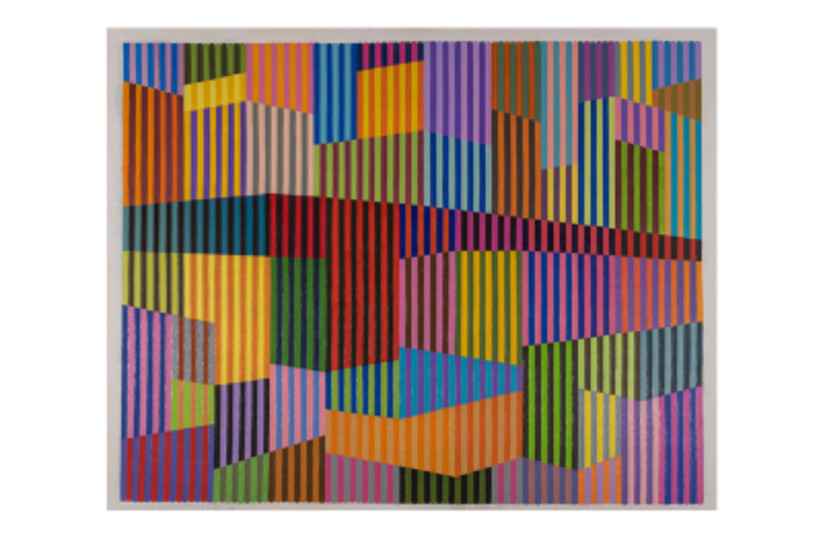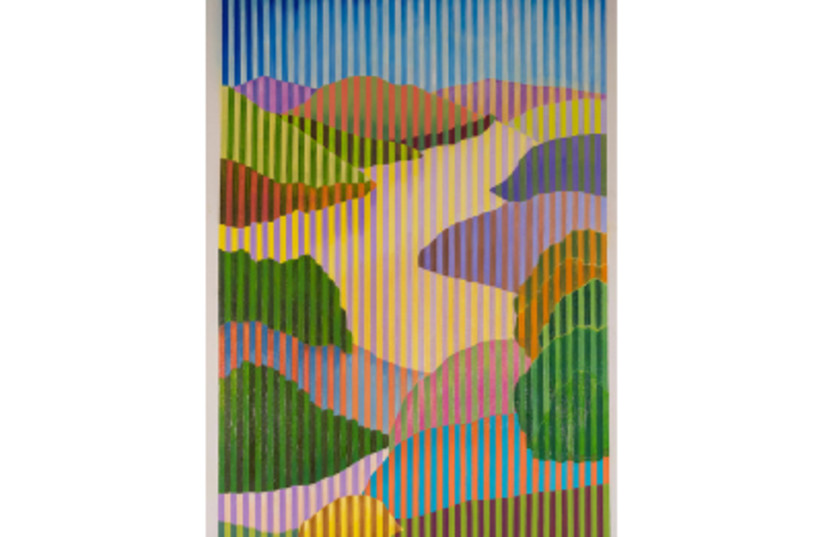‘Israel is like a magnet,” says Stephen Ho. “When you are here, you get magnetized, so wherever you are, you feel the pull.”
Ho, 68, has felt the attraction of the Holy Land since his first visit in 1973. Despite many years during which he lived in England and Hong Kong, his birthplace, he felt the pull and returned.
 Learn how to buy your home in Israel with confidence
Learn how to buy your home in Israel with confidenceHis unlikely story of aliyah begins with a long-forgotten wax museum, which once was in the Shalom Tower in Tel Aviv.
“I had a good friend who worked in a wax museum in Hong Kong,” he recalls. “He was hired to work on the wax museum in the Shalom Tower in 1971. I had just graduated from high school, and I was a friend of one of the artists. I was looking for something to do. I like adventures.”
Happy-go-lucky Stephen decided to join his friend in Israel who was designing the wax figures and planned to travel the world with his friend when the wax museum project was complete.

Arriving in Israel in March of 1973, Stephen, then 19, toured the country while waiting for his artist friend to finish the project. He became friends with another Hong Kong native who was studying archaeology at the Hebrew University of Jerusalem, and the two toured the land.
“I loved Israel,” says Stephen. Having grown up in Hong Kong, which was a British colony until 1997, Stephen felt echoes of home on Allenby Street in Tel Aviv and other areas of Israel that reminded him of the British colonial style. He not only fell in love with the country but with the people as well. “What impressed me was the people at that time – they were really nice.”
On October 6, 1973, the Yom Kippur War began when Egypt and Syria attacked Israel. Stephen, who had friends and relatives living in the United Kingdom, flew to England when the airport reopened 10 days after the war started, and he remained there for three years, studying art.
In October of 1977, Stephen returned to Israel. By now, his friend from the wax museum was working in Mandy’s Singing Bamboo, the first Chinese restaurant in Tel Aviv. The restaurant was managed by the late Mandy Rice Davies, who was a cultural icon in 1970s Tel Aviv. Stephen worked as a waiter there, and then began a second career, decorating and designing Chinese restaurants.
“I knew how restaurants should be set up, because my father was in the restaurant business,” says Stephen.
His love for the land continued during his second stint in Israel, and he owned a World War II vintage Willys Jeep that he drove to Sharm e-Sheikh in Sinai.
“I really loved that Jeep,” he says.

In 1988, Stephen married an Israeli woman, and the couple lived in Tel Aviv. Stephen continued working in the restaurant business and spent time painting and designing.
In 1991, the Gulf War broke out, stores were closed, and Stephen’s business suffered.
“At that time,” he says, “China and Israel were resuming diplomatic relations, and China’s star was rising. I said to my wife, ‘Let’s go back to China to see what’s going on there.’”
Stephen and his wife returned to Hong Kong in 1992, and he started a trading company there, before opening a lighting manufacturing company.
“We had a lot of Jewish and Israeli friends in Hong Kong,” says Stephen. “Every year, there was an evening Independence Day celebration for the Jewish community of Hong Kong,” says Stephen, “and for many years, I donated a sculpture for the auction that was held at the event.”
Stephen and his wife remained in Hong Kong until they returned yet again in 2011, this time permanently. One of their three sons was studying at the Bezalel Academy of Arts and Design at the time, which also influenced their decision to return.
“My wife said to me, ‘I really love it here,’ and I said, ‘I do, too. Let’s come back.’”
STEPHEN AND his wife today live in Kadima, southeast of Netanya, where he spends most of his time painting.
“I wanted to be an artist and to revive my dream,” he says. Recently, a number of his works were shown at the Art Market gallery in the Tel Aviv Port, and several of them are still on display at the gallery. His work features a three-dimensional effect and presents varying views when seen from different angles.
On an average day, Stephen will paint, work on his calligraphy and perform his tai chi exercises. He is in excellent shape and loves to hike whenever the opportunity presents itself. Stephen does all the cooking at home and prepares mostly Chinese food – he favors the Cantonese style – though he admits to having an affinity for hummus and falafel.
He and his wife have three sons, all of whom live in Tel Aviv and work in computer animation.
Commenting on the state of Asian food in Israel today, Stephen says that the food that is advertised today in Israel as Chinese is, for the most part, fusion – a mixture of Chinese, Thai or Japanese dishes, and not the genuine Chinese food that was served at the Bamboo restaurant in the 1970s.
“The Japanese Embassy staff would come every night to our restaurant,” he recalls, “because they knew what they were eating.”
He sniffs at most of what passes for sushi these days. “When you go to a real sushi restaurant, everything is sparkling clean. Most places are dirty. Before you start to learn to make sushi, you must clean first and only then make the sushi.”
Reminiscing about life in Israel during the 1970s and comparing it to life in Israel in 2021, almost 50 years later, Ho says, “I lived in Tel Aviv, and my house was on the ground level. I never locked anything. People were nice, and when they saw that I was Asian, they thought I was Japanese, which was a ‘big deal’ in those days. I told them I was Chinese, and they would invite me to their house for coffee.
“Israelis are still friendly,” says Stephen, “but they have a somewhat different mentality than they had then. It was more free and friendly then in a true way,” he says. “When you hitched a ride, people said, ‘C’mon, get in.’ It was a great time.”
Today, Stephen Ho is happily living in Israel, speaking Hebrew fluently, painting, hiking, and enjoying life. He loves the desert and the wilderness, and is interested in Jewish traditions, though he never converted.
He can’t quite explain the pull that Israel has for him, but he says with a smile, “It pulled me back.”
 Sign up for our newsletter to learn more
Sign up for our newsletter to learn more 